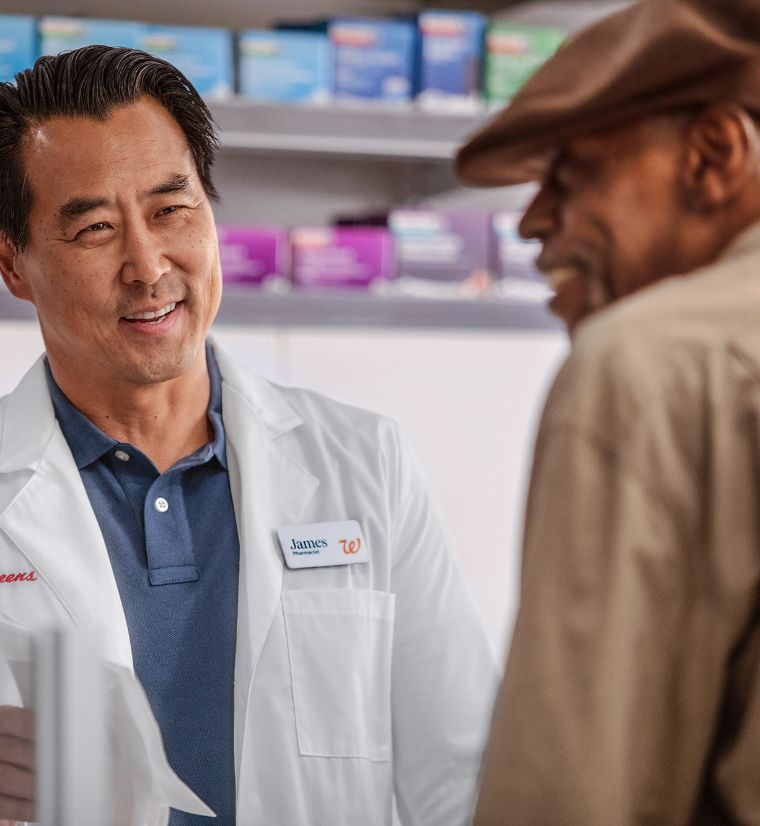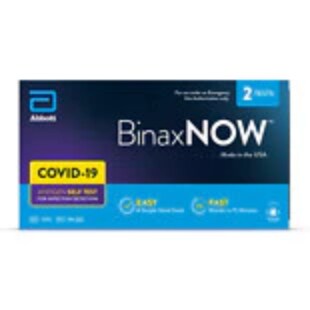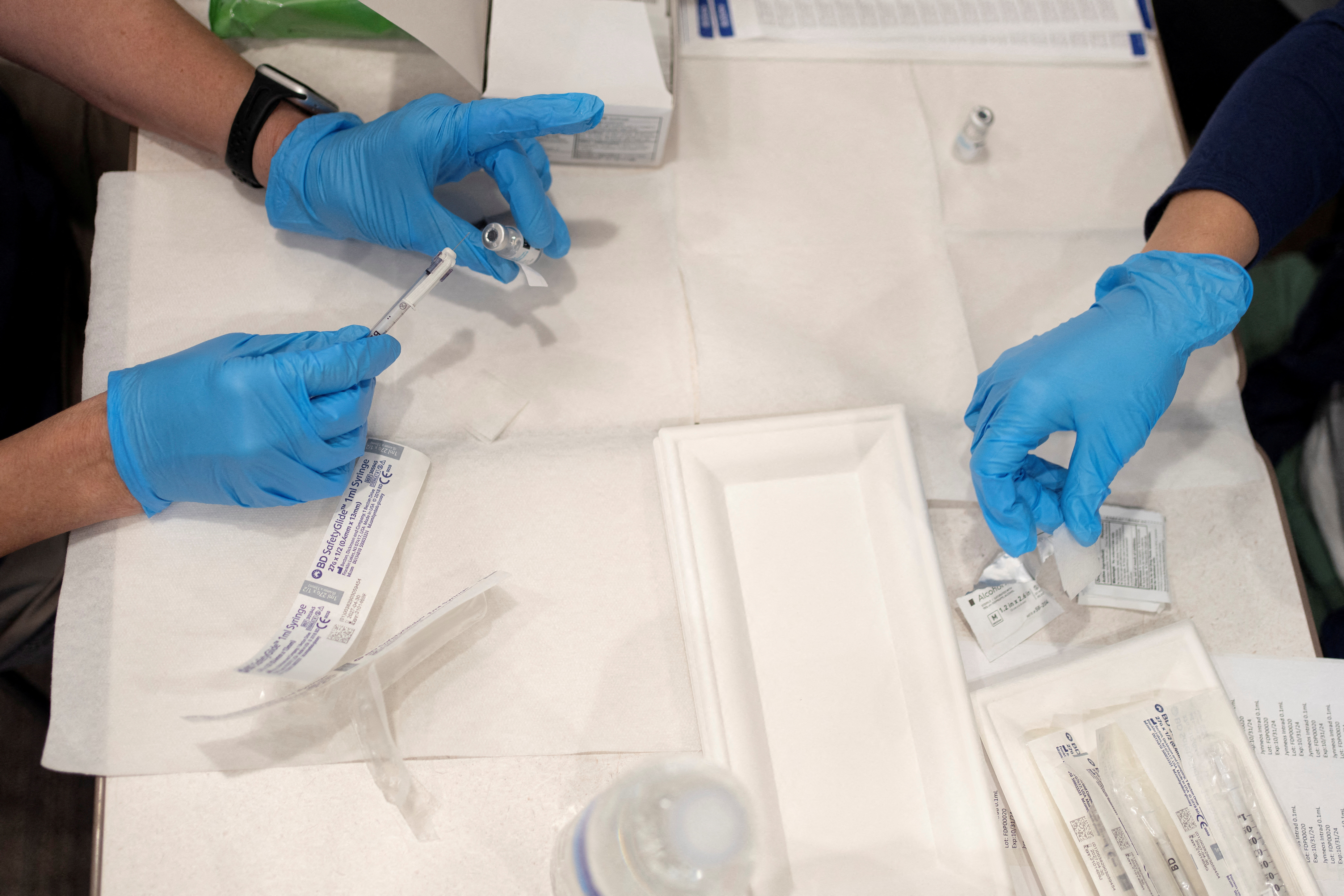
An official website of the United States government
Here’s how you know
Official websites use .gov A .gov website belongs to an official government organization in the United States.
Secure .gov websites use HTTPS A lock ( Lock A locked padlock ) or https:// means you’ve safely connected to the .gov website. Share sensitive information only on official, secure websites.

Vaccines for Travelers
Vaccines protect travelers from serious diseases. Depending on where you travel, you may come into contact with diseases that are rare in the United States, like yellow fever. Some vaccines may also be required for you to travel to certain places.
Getting vaccinated will help keep you safe and healthy while you’re traveling. It will also help make sure that you don’t bring any serious diseases home to your family, friends, and community.
On this page, you'll find answers to common questions about vaccines for travelers.
Which vaccines do I need before traveling?
The vaccines you need to get before traveling will depend on few things, including:
- Where you plan to travel . Some countries require proof of vaccination for certain diseases, like yellow fever or polio. And traveling in developing countries and rural areas may bring you into contact with more diseases, which means you might need more vaccines before you visit.
- Your health . If you’re pregnant or have an ongoing illness or weakened immune system, you may need additional vaccines.
- The vaccinations you’ve already had . It’s important to be up to date on your routine vaccinations. While diseases like measles are rare in the United States, they are more common in other countries. Learn more about routine vaccines for specific age groups .
How far in advance should I get vaccinated before traveling?
It’s important to get vaccinated at least 4 to 6 weeks before you travel. This will give the vaccines time to start working, so you’re protected while you’re traveling. It will also usually make sure there’s enough time for you to get vaccines that require more than 1 dose.
Where can I go to get travel vaccines?
Start by finding a:
- Travel clinic
- Health department
- Yellow fever vaccination clinic
Learn more about where you can get vaccines .
What resources can I use to prepare for my trip?
Here are some resources that may come in handy as you’re planning your trip:
- Visit CDC’s travel website to find out which vaccines you may need based on where you plan to travel, what you’ll be doing, and any health conditions you have.
- Download CDC's TravWell app to get recommended vaccines, a checklist to help prepare for travel, and a personalized packing list. You can also use it to store travel documents and keep a record of your medicines and vaccinations.
- Read the current travel notices to learn about any new disease outbreaks in or vaccine recommendations for the areas where you plan to travel.
- Visit the State Department’s website to learn about vaccinations, insurance, and medical emergencies while traveling.
Traveling with a child? Make sure they get the measles vaccine.
Measles is still common in some countries. Getting your child vaccinated will protect them from getting measles — and from bringing it back to the United States where it can spread to others. Learn more about the measles vaccine.
Find out which vaccines you need
CDC’s Adult Vaccine Quiz helps you create a list of vaccines you may need based on your age, health conditions, and more.
Take the quiz now !
Get Immunized
Getting immunized is easy. Vaccines and preventive antibodies are available at the doctor’s office or pharmacies — and are usually covered by insurance.
Find out how to get protected .

Raj Palraj, M.B.B.S., M.D.
- Infectious Diseases
Recent Posts

- Behavioral Health
- Children's Health (Pediatrics)
- Exercise and Fitness
- Heart Health
- Men's Health
- Neurosurgery
- Obstetrics and Gynecology
- Orthopedic Health
- Weight-loss (Bariatric) Surgery
- Women's Health

9 common questions about vaccines and travel
- Immunizations

Travel does more than just transport you to a different place. It can broaden your perspective, increase your happiness, give you a chance to try new things, boost your creativity and help you recharge. Even planning a trip can be an exciting task. The anticipation of mapping an itinerary and scheduling your must-see attractions can bring a lot of joy and happiness.
One of the most important tasks before taking a trip is to make an appointment with a travel medicine specialist. These health care professionals help keep travelers safe and happy before and after their journeys.
Here are answers to common questions about travel medicine:
1. who should make an appointment with a travel medicine specialist.
Anyone planning a trip overseas can benefit from seeing a travel medicine specialist. However, a travel clinic appointment is critical if you are traveling to underdeveloped or developing countries where there's a higher risk of contracting severe communicable illnesses while abroad. It is also important for patients with certain medical conditions that make their immune systems weaker and more vulnerable to infectious diseases.
2. What vaccinations do I need to travel overseas?
All travelers should be vaccinated against the flu and current with COVID-19 vaccines and boosters.
In addition, it's important to complete the adult vaccination schedule that includes vaccinations for:
- Chickenpox (varicella)
- Diphtheria, tetanus and pertussis (DTP)
- Pneumococcal
- Measles, mumps and rubella (MMR)
Additional vaccines may be recommended depending on your travel itinerary. For example, hepatitis A vaccination is recommended if you are traveling to Southeast Asia. During your appointment, we can discuss which vaccines are appropriate for your itinerary.
3. Are there travel destinations that have different vaccination recommendations?
Yes. Infectious diseases thrive in different climates. If you travel to a new climate, you may be exposed to diseases to which you don't have any immunity.
Some infections are more prevalent in tropical settings compared to temperate climates. For example, typhoid and hepatitis A are more common in Southeast Asia because these communicable diseases can be spread through contaminated water. Some areas of Africa and South America have a higher prevalence of yellow fever and malaria, which are mosquito-borne infections.
The Centers for Disease Control and Prevention (CDC) has good information online for travelers for each travel destination.
Recommended vaccines may include:
- Hepatitis A
- Hepatitis B
- Japanese encephalitis
- Yellow fever
4. Can my primary care provider give me travel vaccinations?
It depends on your travel destinations and vaccine recommendations. I recommend starting the conversation with your primary care provider and reviewing the CDC recommendations .
If you have a complex itinerary with multiple countries or are traveling to Southeast Asia or Africa, it's better to make an appointment at the travel clinic. I also would recommend patients with organ transplants and immunocompromising conditions seek travel medicine consultation to reduce the risk of illness during travel. During that appointment, we will review your itinerary, provide necessary vaccinations and discuss ways to prevent mosquito-borne or tick-borne diseases.
5. How long before my trip should I go to the travel clinic?
Plan to have an appointment at least four weeks before you travel. Some vaccines require several weeks for immunity to develop, while others require more than one dose of vaccine for full protection.
If your trip is to an underdeveloped or developing country, you may need to schedule an appointment up to two months in advance to receive a complete set of immunizations. This gives your body time to produce the protective antibodies, so you are well protected when you land at your destination.
6. Can I only go to the travel clinic before I travel?
No. The Travel and Tropical Medicine Clinic is available before or after travel. The team can provide consultative services and treatment if you get sick after you return home.
7. I'm going to an all-inclusive resort. Will I have a lower risk of getting sick?
Maybe, but no traveler should take safety for granted. Even in an all-inclusive resort, knowing how food is prepared or the water supply quality is not possible. Mosquitos and other insects could still be a concern. It's important to take all necessary precautions and follow vaccination recommendations when you travel, regardless of your accommodations.
8. How do I lower my risk of malaria when traveling?
Malaria is a disease caused by a parasite. It's spread to humans through the bites of infected mosquitoes. Prophylactic malaria medications are available and are started before the travel, continued during the stay and for a certain duration after returning home. A travel medicine specialist can review the risks and benefits of all prevention and treatment options.
9. How do I stay healthy while traveling?
Nothing can ruin a trip like illness. Make sure all your vaccinations and boosters are up to date, and get any new vaccinations recommended for your destinations.
Food and water safety is important while traveling. Only eat well-cooked food. Avoid eating from roadside stands and uncooked foods, like salad and raw vegetables. Drink bottled beverages only, including bottled water. This is especially important if you travel in resource-limited regions, such as Southeast Asia or Africa.
Hand hygiene is important at home and overseas. Wash your hands often using soap and hot water. Avoid crowded places, follow respiratory etiquette and consider optional masking. Mosquitos and bugs can transmit parasites and diseases, like yellow fever and malaria. Use mosquito repellents. Mosquito nets may be appropriate in some parts of the world, as well.
As you make travel plans, schedule an appointment with a travel medicine specialist to get the vaccinations and information you need to be healthy and safe on your journey.
Raj Palraj, M.D. , is a physician in Infectious Diseases and Travel and Tropical Medicine in La Crosse , Wisconsin.
Related Posts

Travel vaccination advice
If you're planning to travel outside the UK, you may need to be vaccinated against some of the serious diseases found in other parts of the world.
Vaccinations are available to protect you against infections such as yellow fever , typhoid and hepatitis A .
In the UK, the NHS routine immunisation (vaccination) schedule protects you against a number of diseases, but does not cover all of the infectious diseases found overseas.
When should I start thinking about the vaccines I need?
If possible, see the GP or a private travel clinic at least 6 to 8 weeks before you're due to travel.
Some vaccines need to be given well in advance to allow your body to develop immunity.
And some vaccines involve a number of doses spread over several weeks or months.
You may be more at risk of some diseases, for example, if you're:
- travelling in rural areas
- backpacking
- staying in hostels or camping
- on a long trip rather than a package holiday
If you have a pre-existing health problem, this may make you more at risk of infection or complications from a travel-related illness.
Which travel vaccines do I need?
You can find out which vaccinations are necessary or recommended for the areas you'll be visiting on these websites:
- Travel Health Pro
- NHS Fit for Travel
Some countries require proof of vaccination (for example, for polio or yellow fever vaccination), which must be documented on an International Certificate of Vaccination or Prophylaxis (ICVP) before you enter or when you leave a country.
Saudi Arabia requires proof of vaccination against certain types of meningitis for visitors arriving for the Hajj and Umrah pilgrimages.
Even if an ICVP is not required, it's still a good idea to take a record of the vaccinations you have had with you.
Find out more about the vaccines available for travellers abroad
Where do I get my travel vaccines?
First, phone or visit the GP practice or practice nurse to find out whether your existing UK vaccinations are up-to-date.
If you have any records of your vaccinations, let the GP know what you have had previously.
The GP or practice nurse may be able to give you general advice about travel vaccinations and travel health, such as protecting yourself from malaria.
They can give you any missing doses of your UK vaccines if you need them.
Not all travel vaccinations are available free on the NHS, even if they're recommended for travel to a certain area.
If the GP practice can give you the travel vaccines you need but they are not available on the NHS, ask for:
- written information on what vaccines are needed
- the cost of each dose or course
- any other charges you may have to pay, such as for some certificates of vaccination
You can also get travel vaccines from:
- private travel vaccination clinics
- pharmacies offering travel healthcare services
Which travel vaccines are free?
The following travel vaccines are available free on the NHS from your GP surgery:
- polio (given as a combined diphtheria/tetanus/polio jab )
- hepatitis A
These vaccines are free because they protect against diseases thought to represent the greatest risk to public health if they were brought into the country.
Which travel vaccines will I have to pay for?
You'll have to pay for travel vaccinations against:
- hepatitis B
- Japanese encephalitis
- tick-borne encephalitis
- tuberculosis (TB)
- yellow fever
Yellow fever vaccines are only available from designated centres .
The cost of travel vaccines that are not available on the NHS will vary, depending on the vaccine and number of doses you need.
It's worth considering this when budgeting for your trip.
Other things to consider
There are other things to consider when planning your travel vaccinations, including:
- your age and health – you may be more vulnerable to infection than others; some vaccines cannot be given to people with certain medical conditions
- working as an aid worker – you may come into contact with more diseases in a refugee camp or helping after a natural disaster
- working in a medical setting – a doctor, nurse or another healthcare worker may require additional vaccinations
- contact with animals – you may be more at risk of getting diseases spread by animals, such as rabies
If you're only travelling to countries in northern and central Europe, North America or Australia, you're unlikely to need any vaccinations.
But it's important to check that you're up-to-date with routine vaccinations available on the NHS.
Pregnancy and breastfeeding
Speak to a GP before having any vaccinations if:
- you're pregnant
- you think you might be pregnant
- you're breastfeeding
In many cases, it's unlikely a vaccine given while you're pregnant or breastfeeding will cause problems for the baby.
But the GP will be able to give you further advice about this.
People with immune deficiencies
For some people travelling overseas, vaccination against certain diseases may not be advised.
This may be the case if:
- you have a condition that affects your body's immune system, such as HIV or AIDS
- you're receiving treatment that affects your immune system, such as chemotherapy
- you have recently had a bone marrow or organ transplant
A GP can give you further advice about this.
Non-travel vaccines
As well as getting any travel vaccinations you need, it's also a good opportunity to make sure your other vaccinations are up-to-date and have booster vaccines if necessary.
Although many routine NHS vaccinations are given during childhood, you can have some of them (such as the MMR vaccine ) as an adult if you missed getting vaccinated as a child.
There are also some extra NHS vaccinations for people at higher risk of certain illnesses, such as the flu vaccine , the hepatitis B vaccine and the BCG vaccine for tuberculosis (TB) .
Your GP can advise you about any NHS vaccinations you might need.
Find out about NHS vaccinations and when to have them
Page last reviewed: 16 March 2023 Next review due: 16 March 2026
- Earn $10 rewards on $35+ select healthy summer essentials
- Up to 60% off clearance
- Shop Deals of the Week
- Your Account
- Walgreens Cash Rewards
- Prescription Refills & Status
- Vaccination Records
- Order Status & History
- Buy It Again
Select a store
Travel immunizations & resources.

Because you shouldn’t stress about your health when you travel

No one wants to get sick on vacation
Stick to your routine no matter where you are.

Making passport renewal easy
Need help with travel medical insurance?
Get up to date.
What vaccines do you need to travel?
The vaccines you need will depend on where you’re traveling and what you will be doing during your travels. Walgreens pharmacists are able to assist in helping you determine which vaccines you may need.
Which travel vaccines are available at Walgreens?
Travel vaccines Walgreens offers include: Yellow Fever, Meningitis, Polio, Typhoid, Japanese Encephalitis, Tick-Borne Encephalitis, Hepatitis A, Hepatitis B and Rabies*.
*Vaccines offered at Walgreens vary by state, age and health conditions. Talk to your local pharmacist about availability.
What other vaccines should I have before traveling?
It’s important to be up-to-date on routine vaccinations before traveling as well—like Measles-Mumps-Rubella (MMR), Tetanus, Flu and COVID-19.
You are leaving Walgreens.com Any information you provide will be subject to GeoBlue’s privacy and security policies.
Essentials you don’t want to be without

- Skip to primary navigation
- Skip to main content
- Skip to primary sidebar
- Skip to footer

- Best Global Medical Insurance Companies
- Student Insurance
- Overseas Health Insurance
- Insurance for American Expats Abroad
- Canadian Expats – Insurance and Overseas Health
- Health Insurance for UK Citizens Living Abroad
- Expat Insurance for Japanese Abroad
- Expat Insurance for Germans Living Abroad
- Travel Medical Insurance Plans
- Trip Cancellation Insurance
- Annual Travel Insurance
- Visitors Insurance
- Top 10 Travel Insurance Companies
- Best Travel Insurance for Seniors
- Evacuation Insurance Plans
- International Life Insurance for US Citizens Living Abroad
- The Importance of a Life Insurance Review for Expats
- Corporate and Employee Groups
- Group Global Medical Insurance
- Group Travel Insurance
- Group Life Insurance
- Foreign General Liability for Organizations
- Missionary Groups
- School & Student Groups
- Volunteer Programs and Non-Profits
- Bupa Global Health Insurance
- Cigna Close Care
- Cigna Global Health Insurance
- Cigna Healthguard
- Xplorer Health Insurance Plan
- Navigator Health Insurance Plan
- Voyager Travel Medical Plan
- Trekker Annual Multi-Trip Travel Insurance
- Global Medical Insurance Plan
- Patriot Travel Insurance
- Global Prima Medical Insurance
- Student Health Advantage
- Patriot Exchange – Insurance for Students
- SimpleCare Health Plan
- WorldCare Health Plan
- Seven Corners Travel Insurance
- Trawick Safe Travels USA
- SafeTreker Travel Insurance Plan
- Unisure International Insurance
- William Russell Life Insurance
- William Russell Health Insurance
Atlas Travel Insurance
- StudentSecure Insurance
- Compare Global Health Insurance Plans
- Compare Travel Insurance Plans
- Health Insurance in the USA
- Health Insurance in Mexico
- Health Insurance in Canada
- Health Insurance in Argentina
- Health Insurance in Colombia for Foreigners
- Health Insurance in Chile
- UK Health Insurance Plans for Foreigners
- Health Insurance in Germany
- French Health Insurance
- Italian Health Insurance
- Health Insurance in Sweden for Foreigners
- Portuguese Health Insurance
- Health Insurance in Spain for Foreigners
- Health Insurance in China
- Health Insurance in Japan
- Health Insurance in Dubai
- Health Insurance in India
- Thailand Health Insurance
- Malaysian Health Insurance for Foreigners
- Health Insurance in Singapore for Foreigners
- Australian Health Insurance for Foreigners
- Health Insurance in New Zealand
- South Africa Health Insurance for Foreigners
- USA Travel Insurance
- Australia Travel Insurance
- Mexico Travel Insurance
- News, Global Health Advice, and Travel Tips
- Insurance Articles
- Travel Advice and Tips
- Best Hospitals in the United States
- Best International Hospitals in the UK
- Best Hospitals in Mexico
Or call for a quote: 877-758-4881 +44 (20) 35450909
International Citizens Insurance
Medical, Life and Travel Plans!
U.S. 877-758-4881 - Intl. +44 (20) 35450909
9 Immunizations You Should Have Before Traveling Abroad

Immunization before travel protects your own health and your investment in your trip. Expert travelers know that nothing ruins time at a special destination like getting sick. Immunization also protects you against diseases with long-term health consequences, like polio or encephalitis.
That is why, since 1944, international travelers have needed immunizations for travel. The goal then and now is to promote public health and reduce the spread of diseases. After 2021, many countries mandated COVID-19 immunization for visitors, but by 2022, most lifted the requirement. As of 2024, it’s rare for countries to require it. Read on to learn about immunization and travel today.
Related: Travel Insurance Requirements Keep Changing – Here are the Latest Mandates
Some Countries Still Require COVID-19 Immunization
Many countries have lifted their COVID-19 immunization and testing requirements for non-citizens and visitors to travel and visit. But in some places, things are still changing. Since each country has its own specific regulations, check to see what your destination requires. For a good example of this type of travel requirement, see the United States former COVID-19 vaccine requirements for international travelers.
How do you find out what you need for your own trip? First, check your specific destination and the airline you are using. If your destination requires COVID-19 immunization, check the types of COVID-19 vaccine your destination accepts. Some countries approve specific COVID-19 vaccines: others approve nearly all COVID-19 vaccinations.
While it’s rarer these days, you may still need to provide proof of immunization to your airline to book travel and board flights. Customs may ask you for proof when you are traveling. At your destination, you may need to show proof of immunization again to enter restaurants or lodging.

Best Travel Insurance With COVID-19 Coverage

- Emergency medical, evacuation, repatriation benefits
- Choose between the basic and more extensive coverage
- Meets Schengen visa insurance requirements
- 24/7 worldwide travel and emergency medical assistance

GeoBlue Voyager Plan
- For U.S. citizens up to age 95
- Includes pregnancy coverage, baggage loss, trip interruption & more
- 24/7/365 service and assistance
Your Destination May Require Yellow Fever Immunization
Yellow fever is a disease transmitted by mosquitos that is endemic in parts of Africa and Central and South America. Over 60 countries have standards around yellow fever immunization for travelers. If you are traveling to or transiting through countries where yellow fever is present, get immunized against yellow fever before you go. Many countries will refuse entry if you have traveled through a yellow fever risk country and you do not have a valid yellow fever vaccination certificate. Learn more about countries with travel requirements for yellow fever immunization from the World Health Organization .
Get Up to Date with Routine Immunizations Before Travel
To reduce your risk of unexpected illness, many medical authorities recommend routine immunizations for travel. Both the World Health Organization and the United States Center for Disease Control (CDC) recommend that travelers are up to date with routine immunizations. These include:
- Diphtheria-Tetanus-Pertussis (whooping cough)
- Measles-Mumps-Rubella (MMR)
- Typhoid Fever
As of 2022, polio was reappearing in more countries. The CDC has travel advisories around polio , recommending polio immunizations for high-risk destinations. India requires visitors coming from countries with endemic polio to have a current oral polio vaccine . Long-term visitors to Pakistan, visiting four weeks or longer, must provide proof of polio immunization to leave Pakistan.
Some Destinations Call for Additional Immunizations
Some countries require or recommend that you have additional immunizations before you travel there. You may also want to safeguard yourself in remote locations with important selective vaccines.
If you plan to visit Saudi Arabia and see the global destination of Mecca, you must meet their meningitis immunization requirements . Meningococcal meningitis vaccines are also recommended for travel in many countries in sub-Saharan Africa .
Hepatitis A immunizations are recommended for most countries. Hepatitis B immunizations are recommended for many destinations in Asia and the Pacific, as well as Africa, South America and the Caribbean. These vaccines are usually three shots over a six-month period, so plan to get these well in advance.
Japanese encephalitis is an infection transmitted by mosquito bites. It causes a dangerous inflammation of the brain, and there is no cure for it. While the risk of a serious case of Japanese encephalitis is low, it is worthwhile getting vaccinated against it if you are visiting Asia, India, the South Pacific, and Australia.
Getting a rabies vaccine is worthwhile if you are traveling to have experiences with wild animals. Wildlife volunteers, and travelers who enjoy caving and spelunking, are at risk of rabies from animal bites or bat exposure in many locations.
How to Provide Proof of Immunization for Travel
Doctors recommend getting most travel immunizations four to six weeks before you travel. This ensures that immunization takes effect. It also gives you time to get your proof of immunization for travel.
Many travel-related vaccines will be recorded in a signed printout called the International Certificate of Vaccine or Prophylaxis (ICVP) . This distinctive yellow document records which immunizations you have received and when. It is most often used to record yellow fever vaccines. The ICVP is not currently used for COVID-19 vaccination records.
Most countries that were requiring proof of COVID-19 immunization are no longer requiring that proof. However, the World Health Organization has launched a system called the Global Digital Health Certification Network to help track vaccinations internationally. This system seeks to protect against present threats as well as any future pandemics.
If you are traveling with children, make sure they are up to date on their vaccines before they travel. You will be responsible for providing their proof of immunization at borders and transit points, along with their passports and tickets.
Does Insurance Cover Travel Immunizations?
Travel immunizations are not always covered by standard health insurance. But it is worth asking, because your insurance may cover some or all immunizations.
It’s possible to get travel immunizations at a reasonable cost. Travel health clinics charge a premium to immunize you quickly. You can shop around for less expensive immunizations – your family doctor can help. They may even be able to provide some travel immunizations for free under public health policies.
Related: Best International Health Insurance Companies
Get Accurate Information for Your Destination
To confirm vaccination requirements for your destination, go directly to official visa or immigration authorities. Each country has its own requirements. Your home country, countries you’ve visited, and countries where you have travel transfers all affect immunization requirements.
Many private websites claim to have vaccination information for travelers. But it is often incomplete, out of date, or echoes World Health Organization recommendations (which are not the same as visa requirements).
At this time, immunization requirements change often. Along with official immigration websites, here are reliable sources with information on immunizations needed for travel:
- United States Center for Disease Control – Travelers’ Health: Destinations
- United Kingdom National Health Service – Fit for Travel
- European Union – Travel and COVID: Rules and Restrictions
Get a fast, free, international insurance quote.
Global medical plans, specialty coverage, company info, customer service.
A .gov website belongs to an official government organization in the United States.
A lock ( ) or https:// means you've safely connected to the .gov website. Share sensitive information only on official, secure websites.
- Clinical Overview
- Investigating a Suspected Case of Polio
- Health Departments: Reporting Cases
- Lab Testing
Polio Vaccination Before Traveling
- Polio, also called poliomyelitis, has been eliminated from most of the world, but it still occurs in some countries.
- Some travelers may be eligible for a one-time booster vaccine before traveling.
- Check the recommendations and make sure you and your family, including children, are fully vaccinated before traveling internationally.
Vaccination for international travelers
People who plan to travel internationally should make sure they are fully vaccinated against polio before departure.
When visiting a country where there is increased risk of exposure to poliovirus, the government of that country may require you to show proof of polio vaccination on your yellow International Certificate of Vaccination or Prophylaxis (ICVP) when departing that country.
Polio vaccination information for adults

Adults who are unvaccinated against polio should complete a primary vaccination series of 3 doses:
- The first dose at any time.
- The second dose 1 to 2 months later.
- A third dose 6 to 12 months after the second dose.
If an adult cannot complete the above series before traveling, an accelerated schedule (3 doses of IPV administered at least 4 weeks apart) is recommended.
Adults who are incompletely vaccinated (got only 1 or 2 doses of polio vaccine in the past) should get the remaining 1 or 2 doses of IPV (administered at least 4 weeks apart) before departure.
Adults who are fully vaccinated and who plan to travel to a country where there is an increased risk of exposure to poliovirus, may receive a one-time booster dose of IPV.
For more information on polio vaccine recommendations for travel, talk to your healthcare provider or visit Travelers' Health: Poliomyelitis .
Visit CDC's Travelers' Health Notices site to see the most current information about polio around the world and what special steps you need to take to protect yourself or a loved one from polio while traveling.
Polio vaccination information for infants and children

CDC recommends that all infants and children in the United States are vaccinated against polio with 4 doses of IPV given at ages 2 months, 4 months, 6–18 months, and 4–6 years.
Keep in mind
If a child cannot complete the routine series before departure, an accelerated schedule is recommended as follows:
- First dose at age 6 weeks or older.
- A second dose 4 or more weeks after the first dose.
- A third dose 4 or more weeks after the second dose.
- A fourth dose 6 or more months after the third dose.
If the accelerated schedule cannot be completed before leaving, the remaining doses should be given in the visited country, or upon return home, at the intervals recommended in the accelerated schedule.
In addition, children completing the accelerated schedule should still receive a dose of IPV at 4 years old or older, as long as it has been at least 6 months after the previous dose.
More information about polio vaccination
Review these pages for more information about polio and polio vaccination:
- Polio Vaccination: What Everyone Should Know
- Polio Vaccines for Children
- Polio Vaccine Information Statement
Polio was once one of the most feared diseases in the United States. Thanks to the polio vaccine, wild poliovirus has been eliminated in this country.
For Everyone
Health care providers, public health.
- Election 2024
- Entertainment
- Newsletters
- Photography
- Personal Finance
- AP Investigations
- AP Buyline Personal Finance
- AP Buyline Shopping
- Press Releases
- Israel-Hamas War
- Russia-Ukraine War
- Global elections
- Asia Pacific
- Latin America
- Middle East
- Election Results
- Delegate Tracker
- AP & Elections
- Auto Racing
- 2024 Paris Olympic Games
- Movie reviews
- Book reviews
- Financial Markets
- Business Highlights
- Financial wellness
- Artificial Intelligence
- Social Media
As COVID-19 ticks up in some places, US health officials recommend a fall vaccination campaign
FILE - Syringes with vaccines are prepared at the L.A. Care and Blue Shield of California Promise Health Plans’ Community Resource Center where they were offering members and the public free flu and COVID-19 vaccines Oct. 28, 2022, in Lynwood, Calif. (AP Photo/Mark J. Terrill, File)
- Copy Link copied
NEW YORK (AP) — With fresh COVID-19 cases bubbling up in some parts of the country, health officials are setting course for a fall vaccination campaign.
The Centers for Disease Control and Prevention on Thursday recommended new shots for all Americans this fall.
Officials acknowledged the need for shots is not as dire as it was only a few years ago. Most Americans have some degree of immunity from being infected , from past vaccinations or both. COVID-19 deaths and hospitalizations last month were at about their lowest point since the pandemic first hit the United States in 2020.
But immunity wanes, new coronavirus variants keep emerging and there are still hundreds of COVID-19-associated deaths and thousands of hospitalizations reported each week.
What’s more, health officials have reported upticks this month in COVID-19-associated emergency room visits and hospitalizations, and a pronounced increase in positive test results in the southwestern U.S.
It’s not clear whether that’s a sign of a coming summer wave — which has happened before — or just a blip, said Lauren Ancel Meyers of the University of Texas, who leads a research team that tracks COVID-19.
“We’ll have to see what happens in the coming weeks,” she said.
Earlier this month, the Food and Drug Administration — following the guidance of its own panel of expert advisers — told vaccine manufacturers to target the JN.1 version of the virus. But a week later, the FDA told manufacturers that if they could still switch, a better target might be an offshoot subtype called KP.2.
At a Thursday meeting at the CDC in Atlanta, infectious disease experts unanimously recommended the updated vaccines for Americans age 6 months and older. The CDC director signed off on the recommendation later in the day. The shots are expected to become available in August and September.
Health officials have told Americans to expect a yearly update to COVID-19 vaccines, just like they are recommended to get a new shot each fall to protect against the latest flu strains.
But many Americans aren’t heeding the CDC’s advice.
As of last month, less than one-quarter of U.S. adults and 14% of children were up to date in their COVID shots. Surveys show shrinking percentages of Americans think COVID-19 is a major health threat to the U.S. population, and indicate that fewer doctors are urging patients to get updated vaccines.
CDC officials on Thursday presented recent survey information in which about 23% of respondents said they would definitely get an updated COVID-19 shot this fall, but 33% said they definitely would not.
Meanwhile, the CDC’s Bridge Access Program — which has been paying for shots for uninsured U.S. adults — is expected to shut down in August because of discontinued funding. The program paid for nearly 1.5 million doses from September to last month.
“It is a challenge with this program going away,” said the CDC’s Shannon Stokley.
About 1.2 million U.S. COVID-associated deaths have been reported since early 2020, according to the CDC. The toll was most intense in the winter of 2020-2021, when weekly deaths surpassed 20,000. About 1 out of every 100 Americans ages 75 and older were hospitalized with COVID in the last four years, CDC officials said Thursday.
The Associated Press Health and Science Department receives support from the Howard Hughes Medical Institute’s Science and Educational Media Group. The AP is solely responsible for all content.
Advertisement
Supported by
Virus Cases Surge Again in Russia, Many From Delta Variant
An outbreak centered in Moscow led to some vaccine mandates and the closing of some public spaces.
- Share full article

By Andrew E. Kramer
MOSCOW — The Russian government has approved three coronavirus vaccines as safe and effective, but Vadim Zhukov took his own approach to testing: He let a friend take one first.
“I waited to see what happened to him,” said Mr. Zhukov, 21, a university student. His friend was fine. Two months later, Mr. Zhukov was standing in line this week at a vaccination site in central Moscow.
Extrapolated across Russia’s 11 time zones and millions of hesitant citizens, that same wait-and-see attitude toward vaccination has taken its toll.
Russia is again in the grips of a virus surge, despite months of assurances from President Vladimir V. Putin’s government that the worst of the pandemic had passed. The spiraling outbreak has come as a surprise, even in the words of the senior officials behind those assurances.
Russian virologists say that the Delta variant , first found in India, is now the most prevalent version in Moscow. The mayor, Sergey Sobyanin, told local media on Friday that 89.3 percent of all new coronavirus cases in the city involve the Delta variant.
Quickly rising case numbers put Russia at risk of following in the path of other countries such as India that seemed to have squelched infections only to see a resurgence.
The outbreak is most pronounced in Moscow, the capital, where case numbers have tripled over the past two weeks, according to city officials, who have added 5,000 beds to coronavirus wards. Moscow health authorities reported 9,056 positive tests on Friday, the highest daily figure for the city since the pandemic began.
Russia has reported 125,853 deaths from Covid-19 since the pandemic started, but statistics showing excess mortality over the past year suggest the real number is far higher.
“This dynamic is something of a surprise,” Mr. Sobyanin told a meeting of government officials on Thursday. Mr. Sobyanin suggested that officials had overestimated how long natural immunity from earlier rounds of infection would provide protection.
Across Russia, only 9.9 percent of the population is fully vaccinated , though Russia last summer claimed to be the first country in the world to have approved a vaccine. For comparison, 44 percent of Americans are fully vaccinated.
Cases crept up slowly throughout the spring, then spiked this month.
“For some reason, and I think that reason was political, they said everything is going well,” Dr. Vasily V. Vlasov, a professor of epidemiology at the Higher School of Economics, said of Russian authorities. But now infection rates are “very high, and we need action.”
Over the winter, little was done to encourage Russians to get vaccinated.
In fact, to avoid stimulating demand late last year when vaccines were scarce , Mr. Putin delayed his own inoculation until March, though age-wise he qualified months earlier, the Kremlin press office said. He did not receive it on camera.
Today, skepticism persists even though vaccines are widely available. The Levada Center, a polling agency, surveyed Russian attitudes about vaccination in April and found that 62 percent did not intend to get a Russian-made vaccine, all that is available in Russia.
“They fear side effects. They don’t trust vaccines in principle, or they want to wait and see what happens to other people first” because of a general mistrust of the government, said Denis Volkov, deputy director of the Levada Center.
Russia is now pivoting to mandating vaccines for some public-facing workers in Moscow and three provincial regions and limiting the working hours of restaurants.
Out on the streets of Moscow, on the first balmy days of spring, police tape went up around children’s playgrounds and basketball courts, in a grim reminder of the persistence of coronavirus.
City authorities on Friday announced a requirement that customers present proof of vaccination at restaurants and bars open later than 11 p.m., in a partial introduction of a “vaccine passport” approach to controlling access to crowded spaces.
The partial vaccine mandate introduced in the city this week does not put the onus on individuals. Instead, employers are required to show by Aug. 15 that at least 60 percent of their work force is fully vaccinated.
The policy leaves it to managers to persuade workers to get vaccinated while allowing some to decline. People with medical reasons to avoid vaccination do not count toward the total.
Many Russians flatly refuse to take the Sputnik V vaccine, which the government approved for emergency use last August before late-stage clinical trials had proven its safety.
It has since been proven safe and effective in clinical trials that were subsequently published in the British medical journal The Lancet.
“It makes healthy people sick,” said Ivan Ivanov, a manager at a construction company, interviewed on a sidewalk in Moscow where he was enjoying an afternoon walk. He said he would never get the vaccine. “I believe in God and God helps me.”
Andrew E. Kramer is a reporter based in the Moscow bureau. He was part of a team that won the 2017 Pulitzer Prize in International Reporting for a series on Russia’s covert projection of power. More about Andrew E. Kramer
Japan is dealing with a 'flesh-eating bacteria' outbreak. Here's what we know about STSS and how to avoid infection
You may have seen alarming headlines warning of a deadly outbreak in Japan over the past few days.
Some outlets have used terms like "flesh-eating bacteria" and "kills in two days", which has sparked international interest.
But Japanese authorities say this wording is an exaggeration of a potential symptom of an infection that is rarely spread to others.
Let's unpack what we know about the disease and the story spreading around the world.
What is the bacterial infection in Japan?
The clinical term for the disease is streptococcal toxic shock syndrome (STSS).
According to NSW Health, it's an infection caused by group A bacteria entering the bloodstream or deep tissue.
This kind of bacteria usually causes mild infections like strep throat in children but certain strains can escalate quickly and lead to invasive group A streptococcal disease (iGAS).
If that sounds familiar, you may have read about cases of iGAS on the rise in Australia last year.
STSS is considered a complication of iGAS that can "develop very quickly into a life-threatening emergency".
How quickly is STSS spreading in Japan?
Japan''s National Institute of Infectious Diseases issued a statement in March warning rates were increasing.
As of June 2, reported cases of STSS in Japan were about 977.
That's quite a leap on the previous period — Japan recorded 941 cases across the entirety of 2023.
Here are the Japanese case numbers from the past few years:
CNN reports this year has already seen the highest number of cases reported in Japan since the current recording method began .
It's not exactly clear why cases are on the rise but Japanese health authorities say a rise in respiratory infections is correlated with COVID-19 measures being relaxed.
Tokyo Women's Medical University professor Ken Kikuchi told Japan's national broadcaster, NHK, people's immune systems were weakened during lockdown.
"We can boost immunity if we are constantly exposed to bacteria but that mechanism was absent during the coronavirus pandemic," he said.
"So, more people are now susceptible to infection, and that may be one reason for the sharp rise in cases."
It's also worth noting the trend isn't limited to Japan.
There have also been increases recorded in Europe.
How does it spread?
It's difficult to say.
While people with open wounds are at an increased risk of contracting STSS, it's not known how the bacteria gets into the bodies of nearly half the people who are diagnosed.
The NSW Health Department says the following groups are most susceptible:
- Older adults and children
- People with diabetes
- People with alcohol use disorder
- People undergoing treatment with non-steroidal anti-inflammatory drugs
- People with an immunodeficiency
What are the symptoms of STSS?
Early symptoms include:
- Fever and chills
- Muscle aches
- Nausea and vomiting
About 24 to 48 hours after the first symptoms start, the following symptoms may develop:
- Low blood pressure
- Organ failure
- A faster-than-normal heart rate
- Rapid breathing
- The death of body tissue
The death of body tissue, which is also known as necrosis, is where the "flesh-eating bacteria" name has come from.
How is it treated?
People with STSS need to receive care at a hospital.
Australia's national public health information service Healthdirect says the disease is treated with antibiotics.
Surgery may also be required to remove the source of infection.
Are there any travel warnings?
At this stage, you don't need to cancel any travel plans.
Smartraveller, the Australian government's travel advice website, hasn't listed STSS as a health risk for travellers in Japan.
The World Health Organisation also hasn't recommended any travel restrictions for countries experiencing outbreaks.
Even though cases are on the rise, it's still considered very rare for someone with STSS to spread the infection to others.
But the CDC warns "less severe group A strep infections can turn into STSS and these bacteria are contagious".
How can I keep safe?
There's no vaccine available, so the best way to avoid infection is to maintain good hygiene.
That includes:
- Washing your hands often and using hand sanitiser
- Washing your body and hair often with soap and clean, running water
- Keeping any wounds clean and bandaged until they heal
- Avoid bodies of water like hot tubs, swimming pools, lakes, rivers and oceans if you have an open wound
- X (formerly Twitter)
Related Stories
Ryan's fight for life cost him his feet and several fingers, but he's still his 'cheeky' little self.
'Rare' strep A infections have jumped in Queensland, with a childcare worker currently in hospital
A surge in severe strep A infections has prompted health warnings. Here's what we know
- Diseases and Disorders
- Infectious Diseases
- Vaccines and Immunity
You are using an outdated browser. Upgrade your browser today or install Google Chrome Frame to better experience this site.
Routine Vaccines

What are "routine vaccines"?
Routine vaccines are those recommended for everyone in the United States, depending on age and vaccine history. Most people think of these as childhood vaccines that you get before starting school, but but there are also routine vaccines for adolescents and adults .
Why are routine vaccines important for travelers?
Because most U.S. children get routine vaccines, many vaccine-preventable diseases, such as measles, mumps, or chickenpox, are not common in the United States. If you are not vaccinated, international travel increases your chances of getting and spreading diseases that are not common in the United Sates. Popular destinations, including Europe, still have outbreaks of measles and other vaccine-preventable diseases.
Make sure you are up to date on all of your routine vaccines . Routine vaccinations protect you from infectious diseases such as measles that can spread quickly in groups of unvaccinated people. Many diseases prevented by routine vaccination are not common in the United States but are still common in other countries.
Check CDC’s destination pages for travel health information . Check CDC’s webpage for your destination to see what vaccines or medicines you may need and what diseases or health risks are a concern at your destination.
Make an appointment with your healthcare provider or a travel health specialist that takes place at least one month before you leave. They can help you get destination-specific vaccines, medicines, and information. Discussing your health concerns, itinerary, and planned activities with your provider allows them to give more specific advice and recommendations.
What routine vaccines do I need?
The routine vaccines you need before travel may depend on your age, health, and vaccine history. You may need to get an accelerated dose of a vaccine or a booster dose before traveling.
Routine vaccinations related to travel may include the following:
- Chickenpox (Varicella)
- Hepatitis A
- Hepatitis B
- Human Papilloma Virus (HPV)
- Measles, mumps, Rubella
- Meningococcal
- Pneumococcal
- Tetanus, diphtheria, pertussis
- Shingles (Zoster)
The following are CDC immunization schedules for by age group:
- Recommended Vaccinations or Infants and Children (birth through 6 years)
- Recommended Vaccinations for Children (7-18 years old)
- Recommended Adult Immunization Schedule for ages 19 years or older
More Information
- Immunization Schedules
- Travel Vaccines
File Formats Help:
- Adobe PDF file
- Microsoft PowerPoint file
- Microsoft Word file
- Microsoft Excel file
- Audio/Video file
- Apple Quicktime file
- RealPlayer file
- Zip Archive file
Exit Notification / Disclaimer Policy
- The Centers for Disease Control and Prevention (CDC) cannot attest to the accuracy of a non-federal website.
- Linking to a non-federal website does not constitute an endorsement by CDC or any of its employees of the sponsors or the information and products presented on the website.
- You will be subject to the destination website's privacy policy when you follow the link.
- CDC is not responsible for Section 508 compliance (accessibility) on other federal or private website.
Official websites use .gov
A .gov website belongs to an official government organization in the United States.
Secure .gov websites use HTTPS
A lock ( ) or https:// means you've safely connected to the .gov website. Share sensitive information only on official, secure websites.
Increased Risk of Dengue Virus Infections in the United States

Distributed via the CDC Health Alert Network June 25, 2024, 2:30 PM ET CDCHAN-00511
Summary The Centers for Disease Control and Prevention (CDC) is issuing this Health Alert Network (HAN) Health Advisory to notify healthcare providers, public health authorities and the public of an increased risk of dengue virus (DENV) infections in the United States in 2024. Global incidence of dengue in 2024 has been the highest on record for this calendar year; many countries are reporting higher-than-usual dengue case numbers . In 2024, countries in the Americas have reported a record-breaking number of dengue cases, exceeding the highest number ever recorded in a single year. From January 1 – June 24, 2024, countries in the Americas reported more than 9.7 million dengue cases, twice as many as in all of 2023 (4.6 million cases). In the United States, Puerto Rico has declared a public health emergency (1,498 cases) and a higher-than-expected number of dengue cases have been identified among U.S. travelers (745 cases) from January 1 – June 24, 2024. In the setting of increased global and domestic incidence of dengue, healthcare providers should take steps including:
- Have increased suspicion of dengue among people with fever who have been in areas with frequent or continuous dengue transmission within 14 days before illness onset,
- Order appropriate diagnostic tests for acute DENV infection: reverse transcription polymerase chain reaction [RT-PCR] and IgM antibody tests, or non-structural protein 1 [NS1] antigen tests and IgM antibody tests,
- Ensure timely reporting of dengue cases to public health authorities, and
- Promote mosquito bite prevention measures among people living in or visiting areas with frequent or continuous dengue transmission.
Background Dengue is the most common arboviral disease globally. It is caused by four distinct but closely related dengue viruses (DENV-1, -2, -3, and -4). DENVs are transmitted through bites of infected Aedes species mosquito vectors. Infection with one DENV generally induces life-long protection against infection from that specific DENV but only protects against other DENVs for several months to years. Dengue is a nationally notifiable disease in the United States. Six U.S. territories and freely associated states are classified as areas with frequent or continuous dengue transmission : Puerto Rico, American Samoa, the U.S. Virgin Islands, the Federated States of Micronesia, the Republic of Marshall Islands, and the Republic of Palau. In the rest of the United States, local transmission of DENV has been limited, with sporadic cases or small outbreaks in Florida, Hawaii, and Texas. However, confirmed local DENV transmission has also been reported by Arizona and California over the past two years.
Approximately one in four DENV infections are symptomatic and can be mild or severe. Symptoms begin after an incubation period of 5–7 days (range 3–10 days) and present as fever accompanied by non-specific signs and symptoms such as nausea, vomiting, rash, muscle aches, joint pain, bone pain, pain behind the eyes, headache, or low white blood cell counts. Warning signs are specific clinical findings that predict progression to severe disease. Warning signs include abdominal pain or tenderness, persistent vomiting, clinical fluid accumulation (e.g., ascites, pleural effusion), mucosal bleeding, lethargy or restlessness, progressive increase of hematocrit, or liver enlargement >2cm. Severe disease, with associated severe bleeding, shock or respiratory distress caused by plasma leakage, or end-organ impairment, develops in 1 in 20 people with symptomatic dengue. Infants aged ≤1 year, pregnant people, adults aged ≥65 years, and people with certain medical conditions are at increased risk of severe dengue. Although a second DENV infection (i.e., with a different DENV from the first infection) carries a higher risk of severe disease than a first, third, or fourth infection, any infection can lead to severe disease.
Patients with symptoms compatible with dengue can be tested with both molecular and serologic diagnostic tests. All patients with suspected DENV infection should be tested with RT-PCR (i.e., a nucleic acid amplification test (NAAT)) or a NS1 antigen test, and also with IgM antibody test to confirm DENV infection. These tests can be considered regardless of the symptom onset date, although the test sensitivity of RT-PCR and NS1 antigen tests decrease after the first 7 days. IgG detection by enzyme-linked immunosorbent assay (ELISA) in a single serum sample should not be used to diagnose a patient with acute dengue because it does not distinguish between current and previous DENV infection. U.S. Food and Drug Administration (FDA)-approved testing is available at public health laboratories and some commercial laboratories. State, tribal, territorial, and local health departments, and CDC can offer additional testing guidance.
There are no antiviral medications approved to treat dengue. Treatment is supportive and requires careful volume management. Appropriate triage, management, and follow-up remain the most effective interventions to reduce dengue morbidity and mortality. Expectant management of patients at high risk for severe disease and rapid initiation of a standardized fluid replacement strategy recommended by the World Health Organization (WHO) can decrease mortality from 13% to <1%. In June 2021, the Advisory Committee of Immunization Practices recommended a dengue vaccine, Dengvaxia , for children aged 9–16 years with laboratory confirmation of previous DENV infection and living in areas with frequent or continuous dengue transmission such as Puerto Rico. While the vaccine is considered safe and effective, the manufacturer (Sanofi Pasteur, Inc., Paris France) has discontinued production citing a lack of demand. Vaccine administration will continue in Puerto Rico until available doses expire in 2026.There are no vaccines recommended for travelers, adults, or persons without a previous DENV infection.
Dengue cases resurged globally after the COVID-19 pandemic. In 2023, more than 4.6 million cases and 4000 deaths were reported in the Americas region. As of June 24, 2024, more than 9.7 million dengue cases have been reported in the Americas, twice as many as in all of 2023 (4.6 million cases). Dengue transmission peaks during the warmer and wetter months in many tropical and subtropical regions. Dengue cases are likely to increase as global temperatures increase. Higher temperatures can expand the range of the mosquitoes that spread dengue, as well as affect other factors that facilitate virus transmission like faster viral amplification in the mosquito, increased vector survival, and changes in reproduction and biting rates. U.S. summer travel often overlaps with the months of increased dengue activity in many countries. Epidemics in the Americas region increase travel-associated cases and limited local transmission in the continental United States. A higher-than-expected number of dengue cases (total of 2,241 cases, including 1,498 in Puerto Rico) were reported in the United States from January 1 – June 24, 2024. Public health authorities in Puerto Rico declared a public health emergency in March 2024 because of the high number of cases reported during the low dengue season. Healthcare providers should be prepared to recognize, diagnose, manage, and report dengue cases to public health authorities; public health partners should investigate cases and disseminate clear prevention messages to the public. The CDC is actively implementing several strategies to address the increase in cases of dengue in the United States, including:
- Launching a program-led emergency response, which was activated on April 8, 2024.
- Providing regularly scheduled monthly situational updates on dengue to partners, stakeholders, and jurisdictions.
- Expanding laboratory capacity to improve laboratory testing approaches.
- Collaborating with State, Tribal, Local, and Territorial Health Departments to strengthen dengue surveillance and recommend prevention strategies.
- Educating the public on dengue prevention.
Recommendations for Healthcare Providers
- Maintain a high suspicion for dengue among patients with fever and recent travel (within 14 days before illness onset) to areas with frequent or continuous dengue transmission .
- Consider locally acquired dengue among patients who have signs and symptoms highly compatible with dengue (e.g., fever, thrombocytopenia, leukopenia, aches, pains, rash) in areas with competent mosquito vectors .
- Order appropriate FDA-approved dengue tests (RT-PCR and IgM antibody tests, or NS1 and IgM antibody tests), and do not delay treatment waiting for test results to confirm dengue.
- Know the warning signs for progression to severe dengue, which include abdominal pain or tenderness, persistent vomiting, clinical fluid accumulation, mucosal bleeding, lethargy or restlessness, and liver enlargement.
- For people with suspected dengue who do not have warning signs and are not part of a population at high risk for severe dengue, consider outpatient management with close follow-up.
- Teach patients about the warning signs that may appear as their fever starts to decline and instruct them to seek care urgently if they experience any warning signs.
- Recognize the critical phase of dengue. The critical phase begins when fever starts to decline and lasts for 24–48 hours. During this phase, some patients require close monitoring and may deteriorate within hours without appropriate intravenous (IV) fluid management.
- Hospitalize patients with severe dengue or any warning sign of progression to severe dengue and follow CDC/WHO protocols for IV fluid management .
- Follow local guidelines to report dengue cases to state, tribal, local, or territorial health departments.
Recommendations for State, Tribal, Local, and Territorial Health Departments
- Use FDA-approved dengue tests. Ensure access to dengue testing for all patients with suspected dengue.
- Remind clinicians of the high risk of dengue among patients with fever who have been in areas with frequent or continuous dengue transmission .
- Remind clinicians that local transmission can occur in areas with competent vectors and to test patients with compatible illnesses even without a history of having been in an area with dengue.
- Inform healthcare providers and the public when locally acquired and travel-associated dengue cases are detected in the area.
- Report dengue cases to CDC via ArboNET , the national arboviral surveillance system managed by CDC and state health departments.
- Take the lead in investigating dengue cases and outbreaks.
- Consider targeted outreach about increasing dengue risk to healthcare providers more likely to identify dengue cases (i.e., travel medicine clinics, infectious disease physicians, or healthcare systems serving highly mobile populations such as migrant and border health clinics, and clinics with frequent travelers to areas with frequent or continuous dengue transmission) and messaging to populations at higher risk for dengue.
Recommendations for the Public
- Use Environmental Protection Agency-approved repellents during travel to and after returning from areas with frequent or continuous dengue transmission.
- Wear loose-fitting, long-sleeved pants and shirts.
- Use air conditioning and window screens when possible, to lower risk for mosquito bites indoors.
- Dump and drain containers that hold water to reduce mosquito egg-laying sites in your home and neighborhood.
- Seek medical care if you have a fever or have dengue symptoms and live in or traveled to an area with dengue outbreaks .
- If you plan international travel to a an area with frequent or continuous dengue transmission , protect yourself from mosquito bites during and after your trip.
For More Information
Healthcare Providers
- Clinical Testing Guidance for Dengue | Dengue | CDC
- Guidelines for Classifying Dengue | Dengue | CDC
- Clinical Features of Dengue | Dengue | CDC
- Dengue Case Management Pocket Guide | CDC
- Dengue During Pregnancy | Dengue | CDC
- Dengue Vaccine | Dengue | CDC
- Dengvaxia: What Healthcare Professionals Need to Know | Dengue | CDC
- Dengue | CDC Yellow Book 2024
- Dengue Clinical Management Course | Dengue | CDC
- Webinar: What Clinicians Need to Know about Dengue in the United States | CDC
Health Departments and Public Health Professionals
- Data and Statistics on Dengue in the United States | Dengue | CDC
- What You Can Do to Control Mosquitoes During an Outbreak | Mosquitoes | CDC
- ArboNET | Mosquitoes | CDC
- Dengue case investigation report | CDC
- Dengue Print Resources | Dengue | CDC
- Communication Resources | Mosquitoes | CDC
- Submitting Specimens for Dengue Virus Tests | Vector-Borne Diseases | CDC
- Preventing Dengue | Dengue | CDC
- Caring for a Family Member with Dengue | CDC
- Mosquito Control at Home | Mosquitoes | CDC
- Get Rid of Mosquitos at Home | CDC
- Your Infant has Dengue | CDC
- Areas with Risk of Dengue | Dengue | CDC
- Travel Health Notices | Travelers’ Health | CDC
- Find a Clinic | Travelers’ Health | CDC
- Pan American Health Organization. Epidemiological Update Increase in dengue cases in the Region of the Americas. https://www.paho.org/en/documents/epidemiological-update-increase-dengue-cases-region-americas-18-june-2024
- Wong JM, Adams LE, Durbin AP, et al. Dengue: a growing problem with new interventions. Pediatrics . 2022;149(6):e2021055522. DOI: 10.1542/peds.2021-055522
- Paz-Bailey G, Adams L, Wong JM, et al. Dengue vaccine: recommendations of the Advisory Committee on Immunization Practices, United States, 2021. MMWR Recommendations and Reports . 2021;70(6):1–16. DOI: 10.15585/mmwr.rr7006a1 .
- World Health Organization. Disease Outbreak News; Dengue – Global situation. May 30, 2024. https://www.who.int/emergencies/disease-outbreak-news/item/2024-DON518
The Centers for Disease Control and Prevention (CDC) protects people’s health and safety by preventing and controlling diseases and injuries; enhances health decisions by providing credible information on critical health issues; and promotes healthy living through strong partnerships with local, national and international organizations.
Department of Health and Human Services
Han message types.
- Health Alert: Conveys the highest level of importance about a public health incident.
- Health Advisory: Provides important information about a public health incident.
- Health Update: Provides updated information about a public health incident.
### This message was distributed to state and local health officers, state and local epidemiologists, state and local laboratory directors, public information officers, HAN coordinators, and clinician organizations. ###
- HAN Archive By Year
- Sign Up for HAN Email Updates
- HAN Jurisdictions
- Prepare Your Health
- Coping with a Disaster or Traumatic Event
- Information on Specific Types of Emergencies
- Information for Specific Groups
- Resources for Emergency Health Professionals
- Training & Education
- Social Media
- Preparation & Planning
- What CDC is Doing
- Blog: Public Health Matters

Exit Notification / Disclaimer Policy
- The Centers for Disease Control and Prevention (CDC) cannot attest to the accuracy of a non-federal website.
- Linking to a non-federal website does not constitute an endorsement by CDC or any of its employees of the sponsors or the information and products presented on the website.
- You will be subject to the destination website's privacy policy when you follow the link.
- CDC is not responsible for Section 508 compliance (accessibility) on other federal or private website.
Exclusive: Congo authorities approve mpox vaccines to try to contain outbreak
- Medium Text

- Congo has seen 20,000 cases and over 1,000 deaths since last year
- Gavi ready to use COVID-19 protocols for vaccine donations
- Funding and stigma are major challenges in tackling the outbreak
Sign up here.
Reporting by Jennifer Rigby, Sonia Rolley and Rocky Swift; Editing by Barbara Lewis and Matthew Lewis
Our Standards: The Thomson Reuters Trust Principles. New Tab , opens new tab

Thomson Reuters
Jen reports on health issues affecting people around the world, from malaria to malnutrition. Part of the Health & Pharma team, recent notable pieces include an investigation into healthcare for young transgender people in the UK as well as stories on the rise in measles after COVID hit routine vaccination, as well as efforts to prevent the next pandemic. She previously worked at the Telegraph newspaper and Channel 4 News in the UK, as well as freelance in Myanmar and the Czech Republic.

World Chevron

Trump vs Biden Live: What time is the US Presidential Debate?
President Joe Biden and Donald Trump face off. New rules. Same high stakes.


IMAGES
COMMENTS
You may be able to get some travel vaccines from your primary healthcare provider. If you or your healthcare provider need help finding a location that provides certain vaccines or medicines, visit CDC's Find a Clinic page. If yellow fever vaccine is recommended or required for your destination, you'll need to go to a vaccine center ...
Vaccination (2-dose vaccine): Recommended for most travelers. --Administer 2 doses, at least 6 months apart. --At least 1 dose should be given before travel. Consultation: Advise patient to wash hands frequently and avoid unsafe food and water. Hepatitis B. Sexual contact, contaminated needles, & blood products, vertical transmission.
More. Learn about CDC's Traveler Genomic Surveillance Program that detects new COVID-19 variants entering the country. Sign up to get travel notices, clinical updates, & healthy travel tips. CDC Travelers' Health Branch provides updated travel information, notices, and vaccine requirements to inform international travelers and provide ...
Vaccines. Vaccination is the administration of agent-specific, but safe, antigenic components that in vaccinated individuals can induce protective immunity against the corresponding infectious agent. Before departure, travelers should have a medical consultation to learn about the risk of disease in the country or countries they plan to visit ...
Below is a list of vaccine-preventable travel-related diseases that are not covered by routine adult vaccinations: Hepatitis A. Hepatitis B. Typhoid and paratyphoid fever. Meningococcal disease ...
Protect your child and family when traveling in the United States or abroad by: Getting the shots required for all countries you and your family plan to visit during your trip. Making sure you and your family are up-to-date on all routine U.S. vaccines. Staying informed about travel notices and alerts and how they can affect your family's ...
Vaccines for Travelers. Vaccines protect travelers from serious diseases. Depending on where you travel, you may come into contact with diseases that are rare in the United States, like yellow fever. Some vaccines may also be required for you to travel to certain places. Getting vaccinated will help keep you safe and healthy while you're ...
Non-routine vaccinations required for travel to some countries Staying up to date on typical vaccines like those for COVID-19, flu, tetanus and hepatitis A and B is a smart choice for everyone.
But if you're going to countries like Canada, Japan, Australia, New Zealand, and Western Europe, you probably won't need any extra vaccines. If you plan to travel to a part of the world where ...
Pneumococcal. Measles, mumps and rubella (MMR) Polio. Shingles. Additional vaccines may be recommended depending on your travel itinerary. For example, hepatitis A vaccination is recommended if you are traveling to Southeast Asia. During your appointment, we can discuss which vaccines are appropriate for your itinerary. 3.
Travel vaccination advice. If you're planning to travel outside the UK, you may need to be vaccinated against some of the serious diseases found in other parts of the world. Vaccinations are available to protect you against infections such as yellow fever, typhoid and hepatitis A. In the UK, the NHS routine immunisation (vaccination) schedule ...
Overview . The country list is a compilation of key information to facilitate safe international travel. The information provided for each country includes any State health requirements as well as WHO recommendations for yellow fever vaccination, polio vaccination, and malaria prophylaxis.
The three most commonly recommended travel vaccines are: Hepatitis A vaccine for travel to most other countries in the world. Hepatitis A is a common viral infection that you can get from contaminated water or food. Yellow fever vaccine for travel to some parts of Africa and South America. Yellow fever is a virus that spreads through mosquito ...
vaccines offer important advantages for travellers by reducing the number of injections required. In general, licensed combination vaccines are just as safe and effective as the single-disease vaccines. 6.1.7 Choice of vaccines for travel Vaccines for travellers include: (1) routine vaccines for review before travelling, (2) vaccines
Travel vaccines Walgreens offers include: Yellow Fever, Meningitis, Polio, Typhoid, Japanese Encephalitis, Tick-Borne Encephalitis, Hepatitis A, Hepatitis B and Rabies*. *Vaccines offered at Walgreens vary by state, age and health conditions. Talk to your local pharmacist about availability. What other vaccines should I have before traveling? ...
planning travel to, or living in, parts of the world where epidemics of serogroup A, C, W-135 or Y meningococcal disease occur, ... Steffen R. Travel vaccine preventable diseases-updated logarithmic scale with monthly incidence rates. Journal of Travel Medicine 2018;25.
However, the World Health Organization has launched a system called the Global Digital Health Certification Network to help track vaccinations internationally. This system seeks to protect against present threats as well as any future pandemics. If you are traveling with children, make sure they are up to date on their vaccines before they travel.
For more information on polio vaccine recommendations for travel, talk to your healthcare provider or visit Travelers' Health: Poliomyelitis. Visit CDC's Travelers' Health Notices site to see the most current information about polio around the world and what special steps you need to take to protect yourself or a loved one from polio while ...
Earlier this week, the University of California system said it will make Covid-19 vaccinations mandatory for all faculty, staff and students this fall, including the university's health system ...
FILE - Syringes with vaccines are prepared at the L.A. Care and Blue Shield of California Promise Health Plans' Community Resource Center where they were offering members and the public free flu and COVID-19 vaccines Oct. 28, 2022, in Lynwood, Calif. (AP Photo/Mark J. Terrill, File)
The mayor, Sergey Sobyanin, told local media on Friday that 89.3 percent of all new coronavirus cases in the city involve the Delta variant. Across Russia, only 9.9 percent of the population is ...
The World Health Organisation also hasn't recommended any travel restrictions for countries experiencing outbreaks. Even though cases are on the rise, it's still considered very rare for someone ...
The Nordic country has bought vaccines for 10,000 people, each consisting of two injections, as part of a joint EU procurement of up to 40 million doses for 15 nations from manufacturer CSL Seqirus
What routine vaccines do I need? The routine vaccines you need before travel may depend on your age, health, and vaccine history. You may need to get an accelerated dose of a vaccine or a booster dose before traveling. Routine vaccinations related to travel may include the following: COVID-19; Chickenpox (Varicella) Hepatitis A; Hepatitis B
The ranking of the world's most liveable cities for 2024 has just been released by the Economist Intelligence Unit (EIU), and a European city has come out on top.
Europe - Vaccinations Necessary for Travel to Moscow? - Hi. I am going to Moscow next week. I have been advised that certain vaccinations are recommended for travel to Russia (Hepatitis A ...
In June 2021, the Advisory Committee of Immunization Practices recommended a dengue vaccine, ... and changes in reproduction and biting rates. U.S. summer travel often overlaps with the months of increased dengue activity in many countries. Epidemics in the Americas region increase travel-associated cases and limited local transmission in the ...
The post-Covid world of heightened germ awareness, the top 10 of the World's Cleanest Airlines were mostly based in Asia. Cathay Pacific took the top spot, with ANA, EVA, Qatar and Singapore ...
LONDON, June 26 (Reuters) - Authorities in the Democratic of Congo have approved the use of two mpox vaccines to try to tackle an upsurge in cases and a dangerous new strain spreading in the ...
Crew on board the world's largest cruise ship, the Icon of the Seas, were called on to tackle a fire this week as the gigantic vessel was berthed in a port in Mexico.